Articles

The Greenwashing of “Regenerative”
To ensure the regenerative movement remains authentic, we must draw on lessons from the past. What criteria can help us distinguish genuine efforts from empty rhetoric? How do we hold organizations accountable and ensure that regenerative practices drive real, systemic change? By learning from history and acting with intention, I hope we can protect this promising movement's integrity and its potential to create a just and sustainable future.

We Lost USAID Funding, but We’re Keeping the Work Alive
What would you do if you had the chance to apply to the US government for a $4 million grant? Back in 2010, we had this chance, and frankly, we were on the fence. After serious deliberation, we decided to apply. As a result, for almost 15 years, we managed farmer-focused development projects, directing resources and programming to small farmer co-ops and their members, with undeniably positive results. We were poised to implement the next wave of this work until, in February this year, the US government abruptly terminated USAID awards like ours.
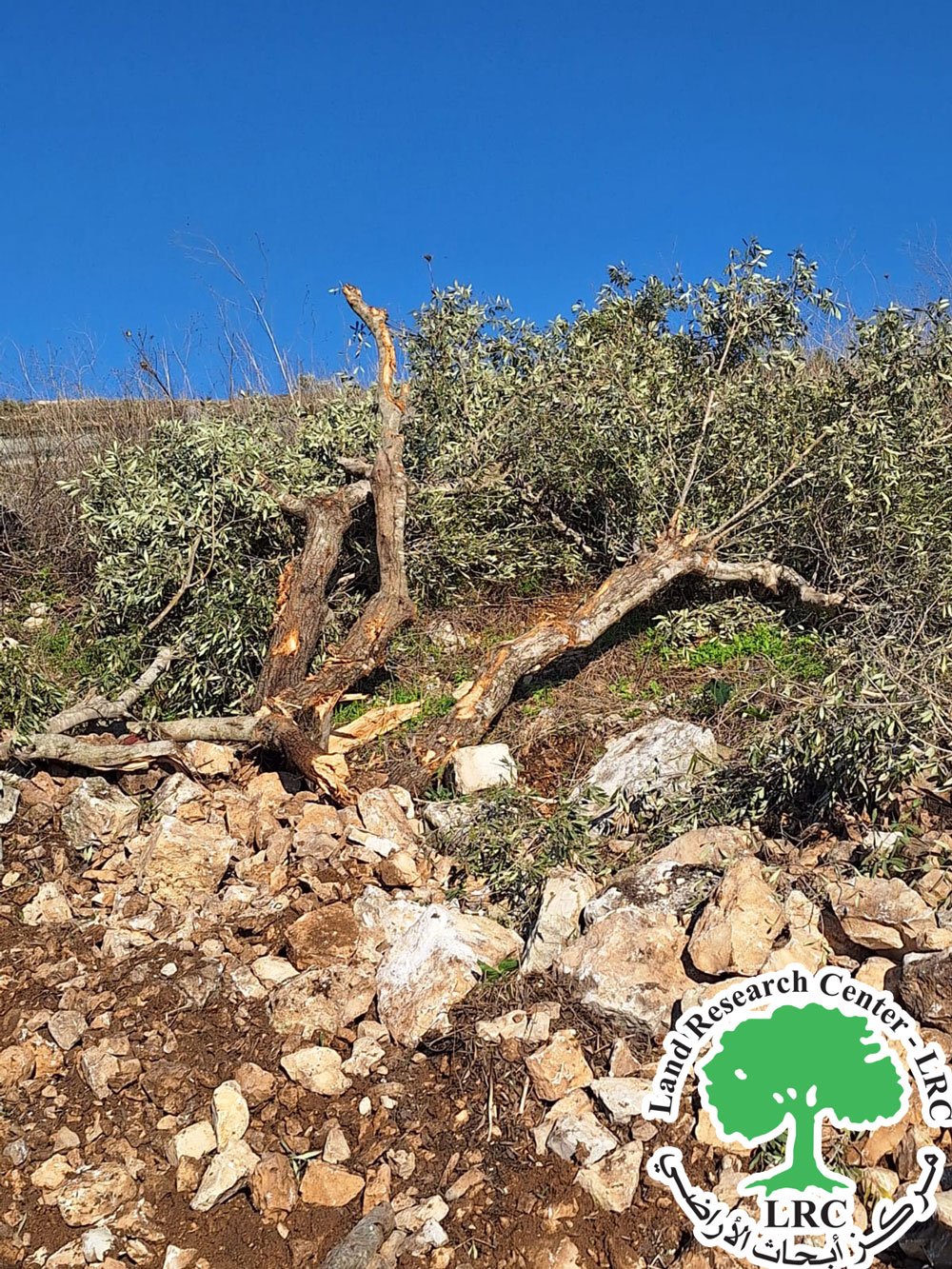
Update on Palestinian Farmers in the West Bank
Equal Exchange Olive Oil and Medjool Dates from the Palestinian Agricultural Relief Committee (PARC) come from small farmers in the West Bank. PARC shares an update on what the situation has been like for farmers in the West Bank after October 7th, in 2024 and so far in 2025.
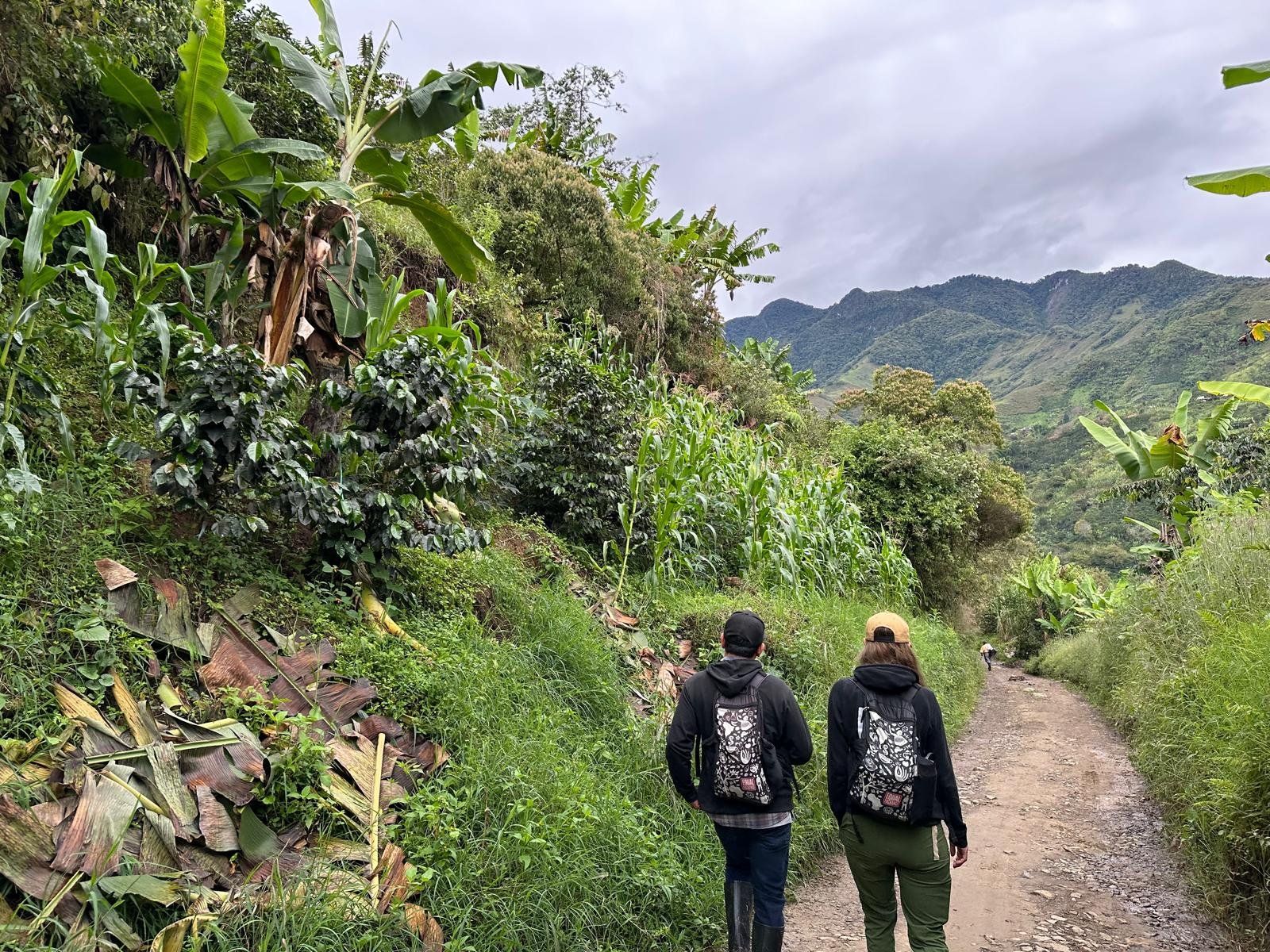
Citizen-Consumer Reflections from Colombia
In November 2024, our staff traveled to Colombia with members of our Citizen-Consumer community to visit our farmer partners there. Here are reflections from two members, Terry Steele and Susan Redlich, shared directly upon their return home.

Individual Actions We Can All Take to Transform Food Systems
Following up on her article, Pathways to Creating a Just Food System, Dana Geffner explores the barriers and opportunities to creating a just food system through this four-part series of articles, from outlining regenerative business structures to showing examples of alternative business models and alternatives to conventional shopping. In this fourth and final part of the series, she focuses on what individuals can each do to participate in transforming our food system.
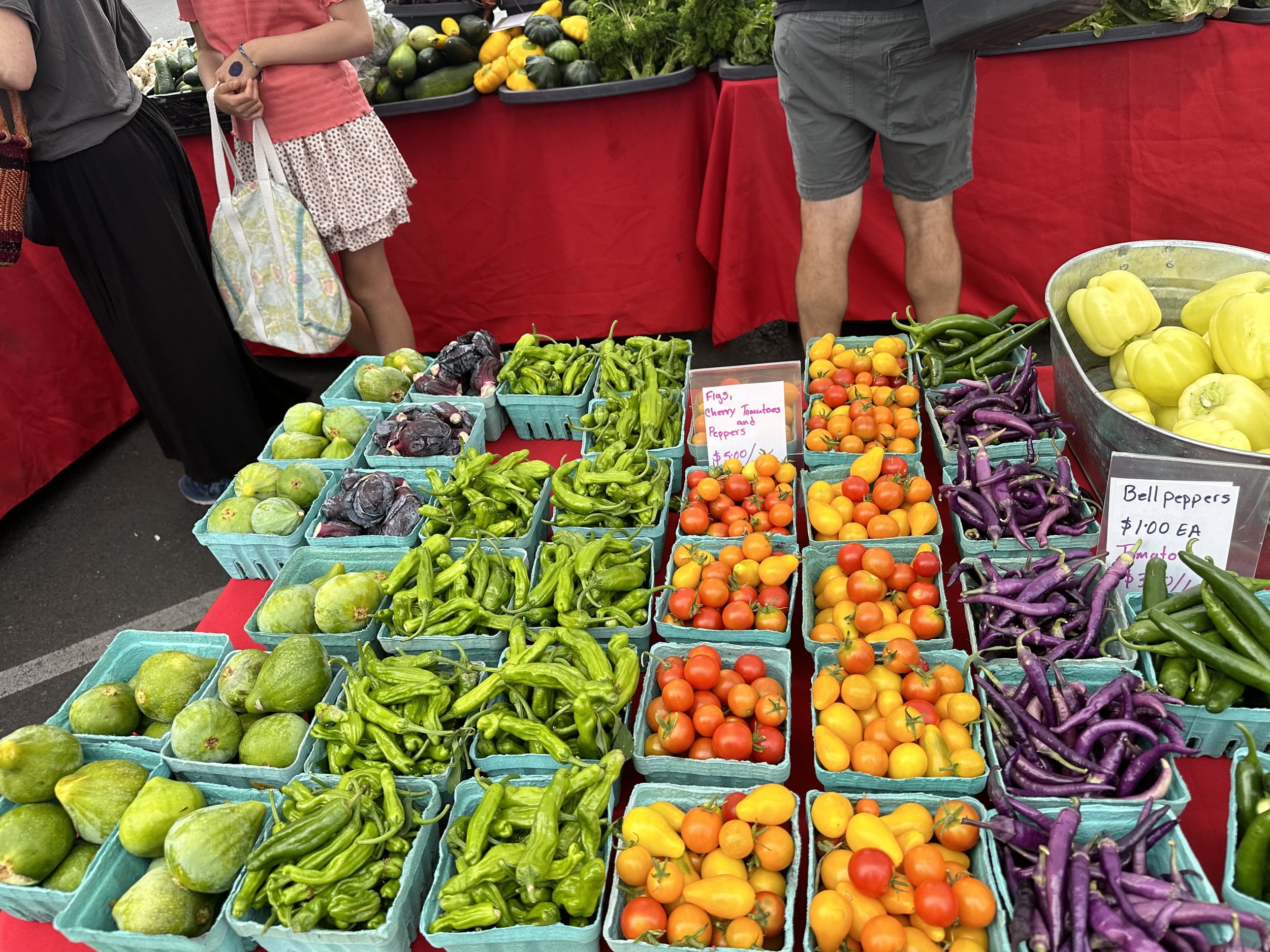
Alternatives to Conventional Shopping
In part 3 of a series, Dana shares examples of people and communities around the globe who are offering consumers a way to shop that does not extract wealth out of communities. Here are a few examples of community-owned grocery stores, national organizing associations, and other models that place farmers in the driver’s seat.

Conventional vs. Regenerative Business Structures
From manufacturers to retail grocery stores to daily farmers markets, alternative business models are paving the way to transform the food industry. In part 1 of a series, Dana Geffner explores how regenerative practices build fair and equitable partnerships prioritizing workers, small-scale farmers in the global majority, family farmers in the global minority, and farmworkers organizations. With these practices, including regenerative agriculture, we can come out the other side with a world that regenerates rather than degenerates.
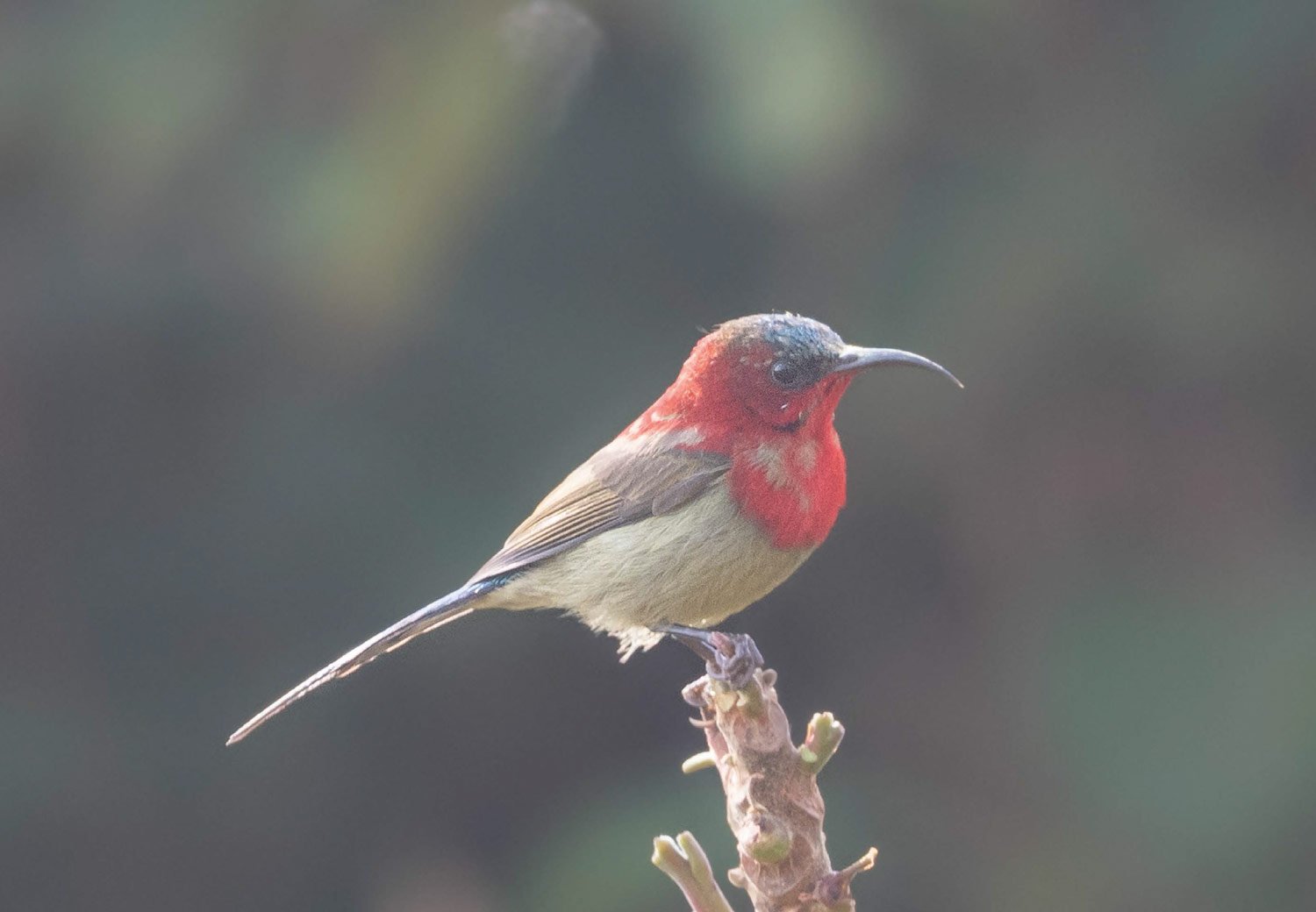
The Endangered Birds & Heroic Insects of TPI
Tea Promoters India share a glimpse of the wildlife gracing their tea gardens. “Sunbirds, with their vibrant plumage and delicate, curved beaks, are vital players in the intricate dance of our tea garden ecosystem.”
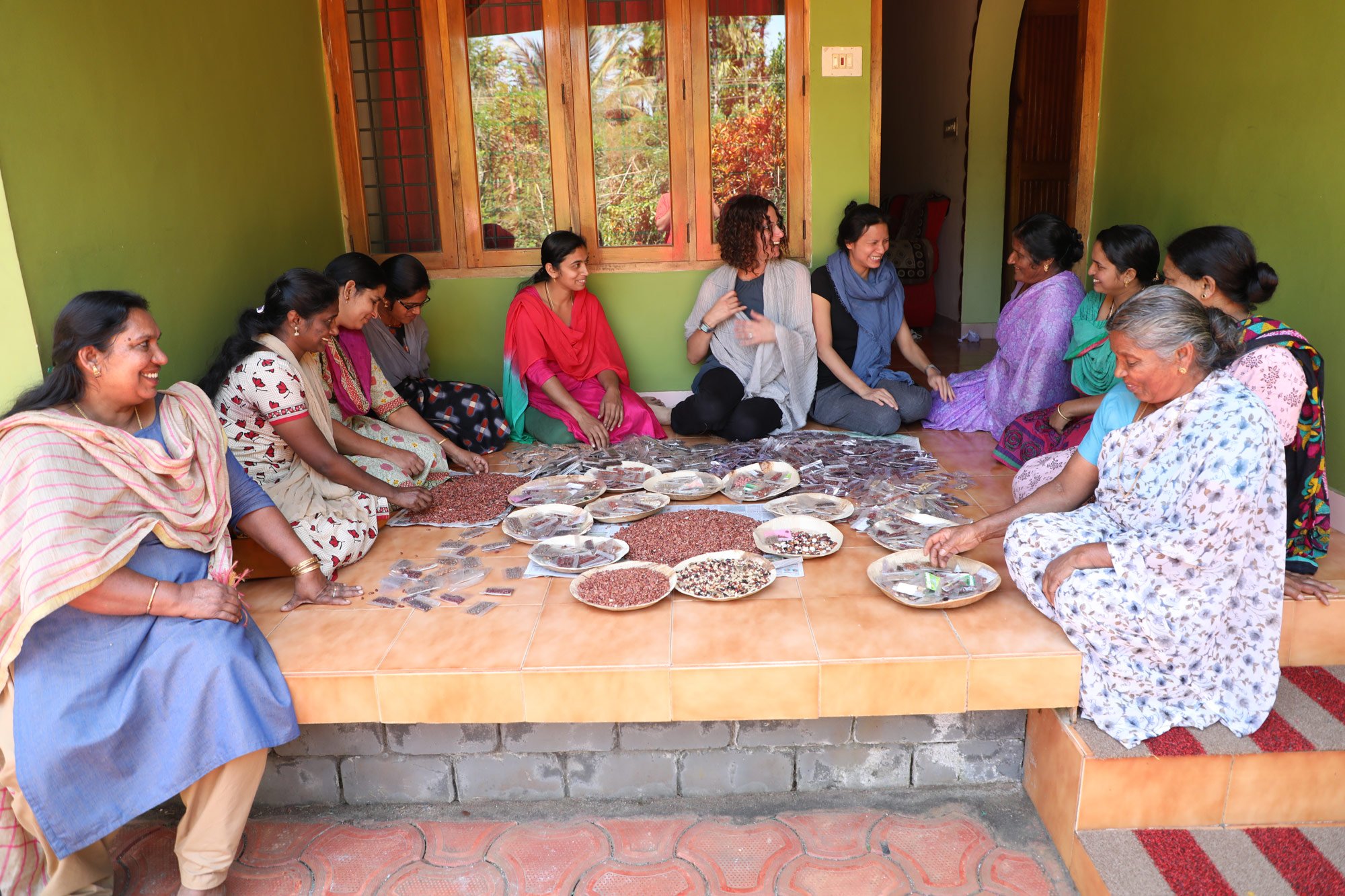
Pathways to Creating a Just Food System
The Global Economic System is rife with abuse and injustice. Since the power in global supply chains favors those with size and wealth, most of the people who grow, process, and produce our food suffer poverty wages, unsafe work conditions, and other rights violations. Small-scale farmers and workers are typically marginalized and disempowered in the global economic system. People are organizing in many different ways to push back against the conventional extractive business models to transform our food systems. Guest contributor, Dana Geffner shares some success stories of how different mechanisms drive a larger movement in creating a more just and sustainable food system.
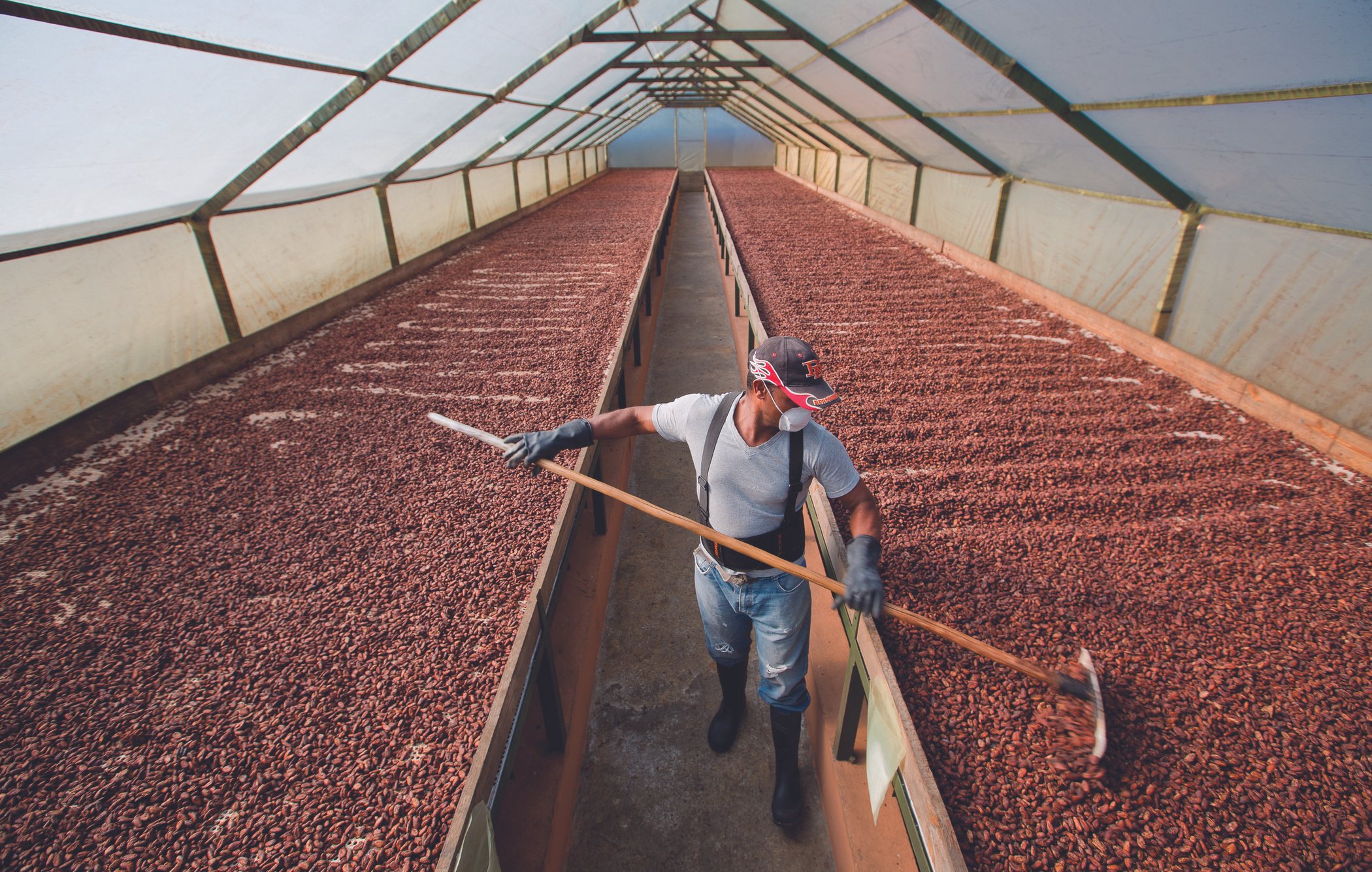
Chocolate: A Bittersweet Luxury
While chocolate is considered a luxury for many of us, for small-scale farmers worldwide, it is their source of necessary income that often comes with the harsh realities of corporate control of the industry. The cocoa industry is highly consolidated with only four companies controlling nearly 90% of the chocolate market, giving them a huge amount of control over cacao farmers and the prices we see on the supermarket shelves. What does this mean for farmers and child labor and do individuals have a chance at transforming a broken system?
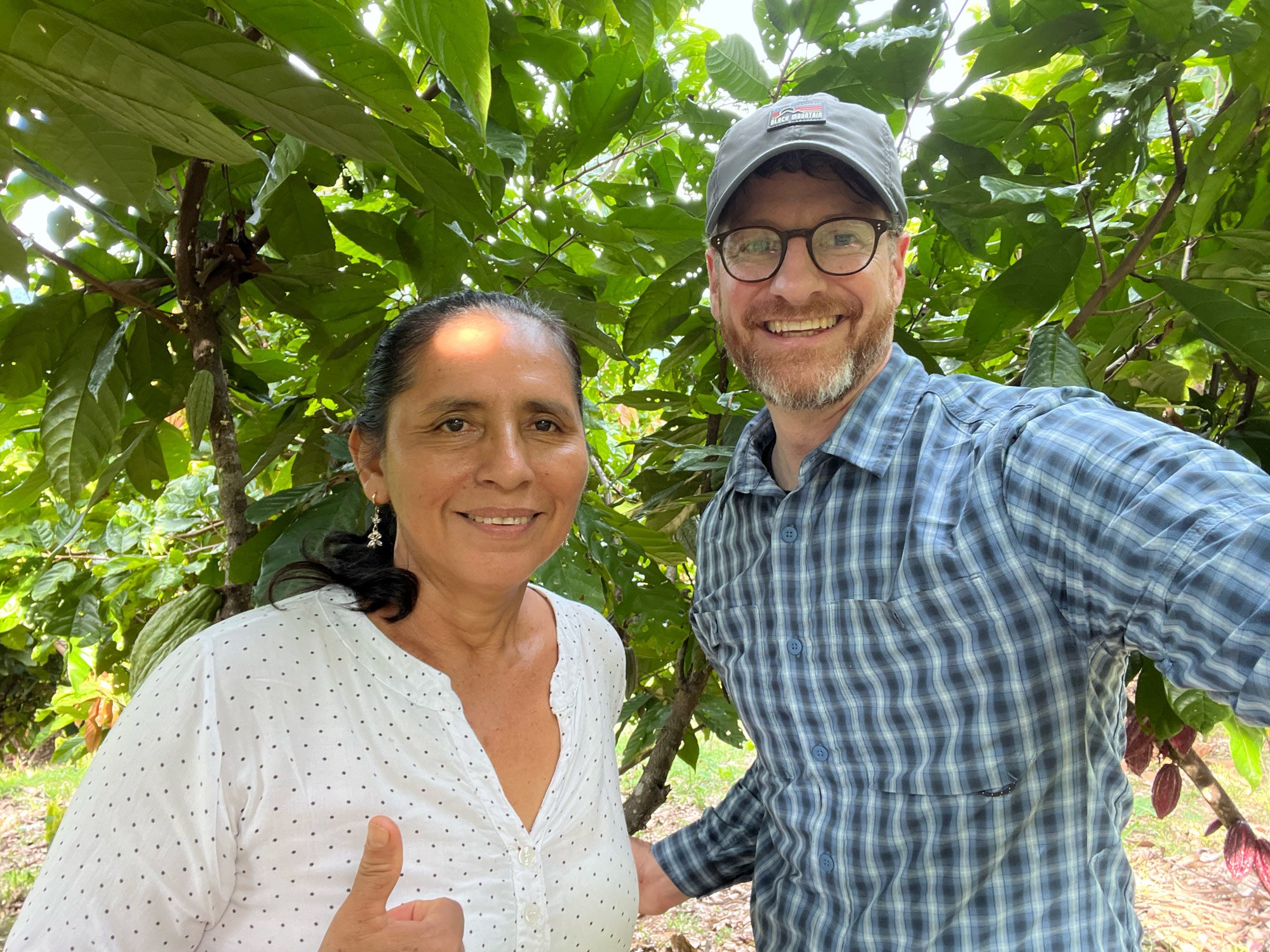
Cooperative Partnerships Rule Over the Market
Dary Goodrich, our Chocolate Products Manager, was recently in Peru, where the cacao harvest is just beginning. With the current global shortage of cocoa and the unprecedented surge in cocoa prices, farmers shared that they were aware of the higher-than-normal prices at the end of last year and invested more in their farms to make sure they would have a great harvest. Dary reflects more on what is happening and what this means for our farmer partners and chocolate lovers like you.
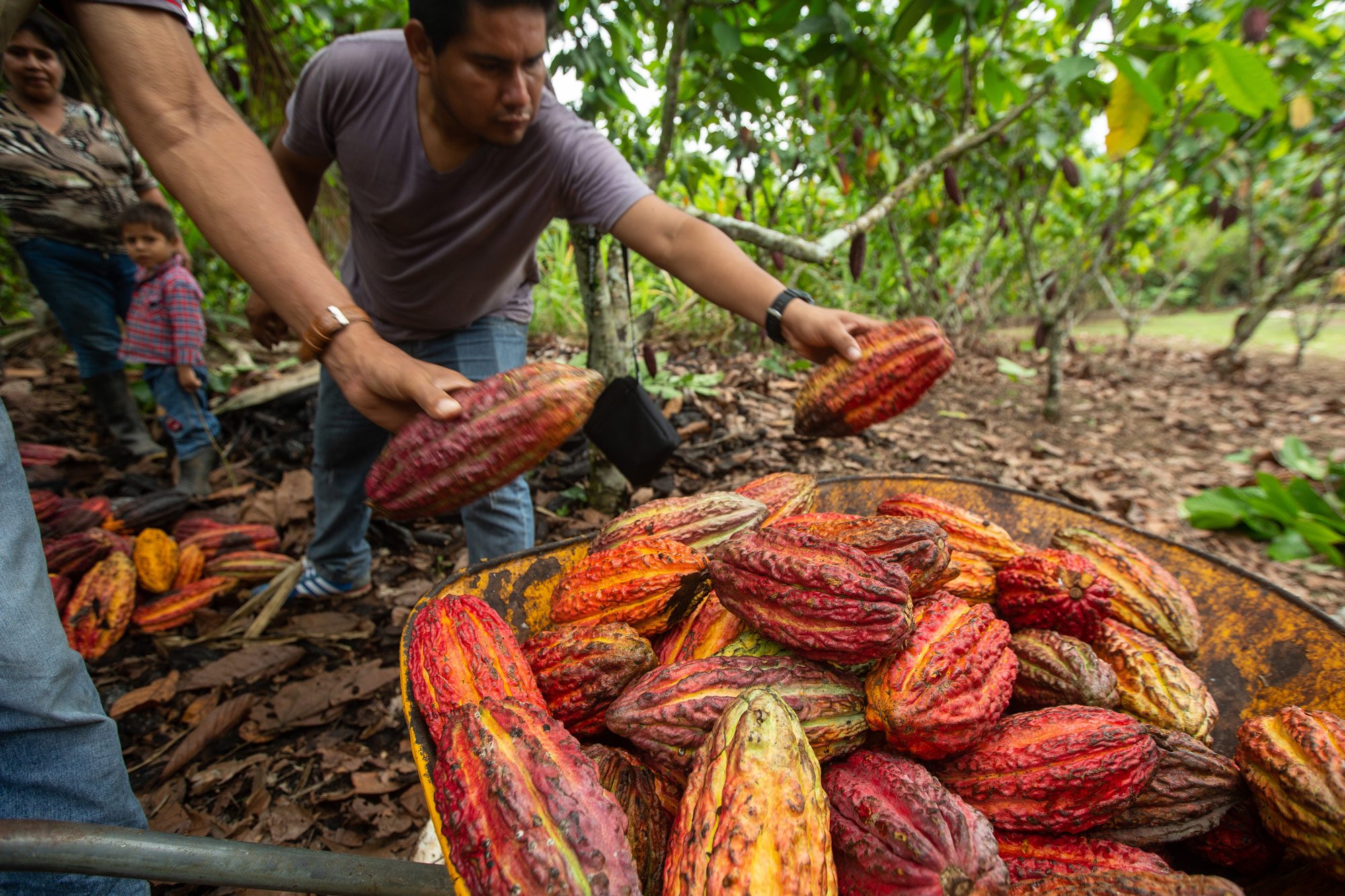
Unprecedented Chocolate Prices Reveal a Vulnerable Supply Chain
While cocoa and chocolate are beloved products for many of us, they have been receiving attention lately related to a global shortage, and the causes and consequences linked to this shortage, including a spike in prices on grocery shelves. We at Equal Exchange want to share some inside perspectives about what’s happening in the cacao world, including how climate change, commodity markets, and alternative fair trade supply chains interrelate. It’s also an opportune time to focus some deserved attention on cacao farmers.
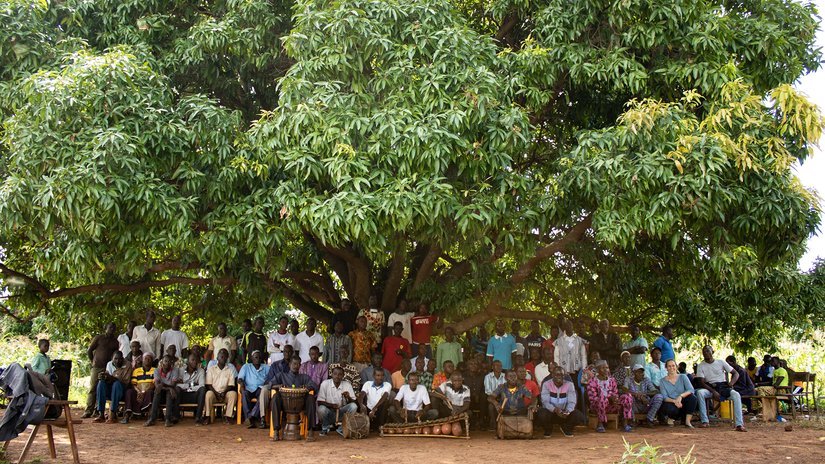
The Story Behind Our Alternative Trade Partnership with Gebana Burkina Faso
Since our founding, Equal Exchange has sought to partner with visionary, democratic, and sustainably-minded producer groups, distributors, food cooperatives, and natural grocery stores. This approach is no longer enough. We now have to respond to this growing corporate threat by taking our model one step further: partnering with other Alternative Trade Organizations and building bridges amongst ourselves, as if we were islands floating in a large ocean that is today’s food system. We believe this is the only way to survive, continue to thrive, and achieve our mutual goal of a food system that works for everyone, not just corporations.
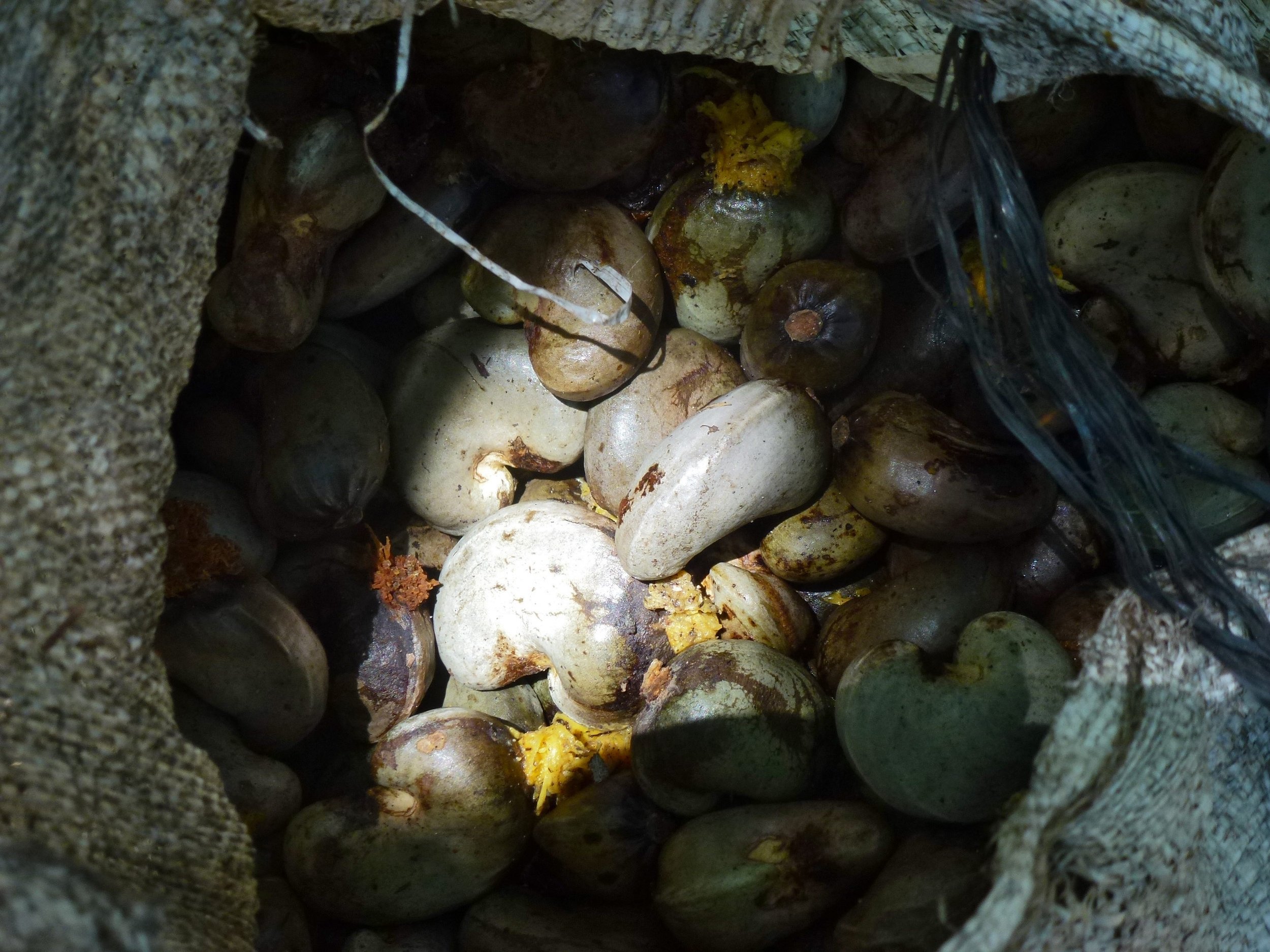
The Dark Side of the Cashew Industry
“If cashew importers want to ensure that their supply chains are not tainted with forced labor and abuse, they need to very closely scrutinize where they source their products,” –Joseph Amon, Director of Human Rights Watch, Health & Human Rights Division
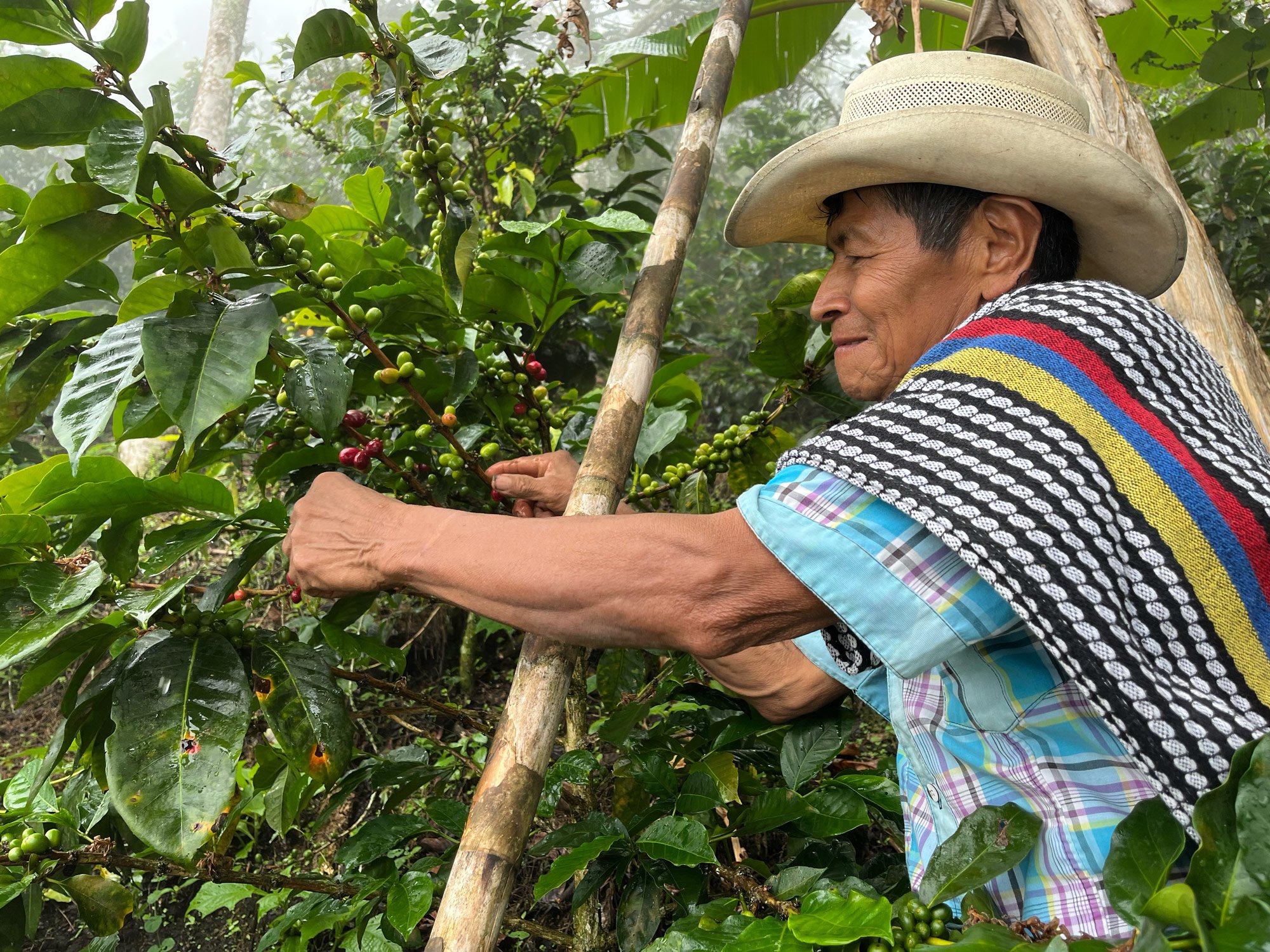
Colombia Series: Snapshot of an Organic Farm
Our staff recently traveled to Colombia to visit our farmer partners there. It's a common experience: when we go to source and someone asks how the trip was, it is hard to answer. The truth is, the experience is complex. So complex that we are going to take our time to share different reflections, angles, and photos over time, to give a more complex answer. To kick off this series, Lynsey Miller reflects on her visit to a lush and abundant organic coffee farm.

Who Grows the Cacao in Your Chocolate?
Starting around 2000, labor abuses in the cocoa industry began to get international attention. You may have heard about poverty wages, unsafe working conditions, the worst forms of child labor and even modern-day slavery. You may have heard that farming practices that damage the environment were common, too. But what’s going on with that now? Have things gotten any better? (Article updated February 2024)
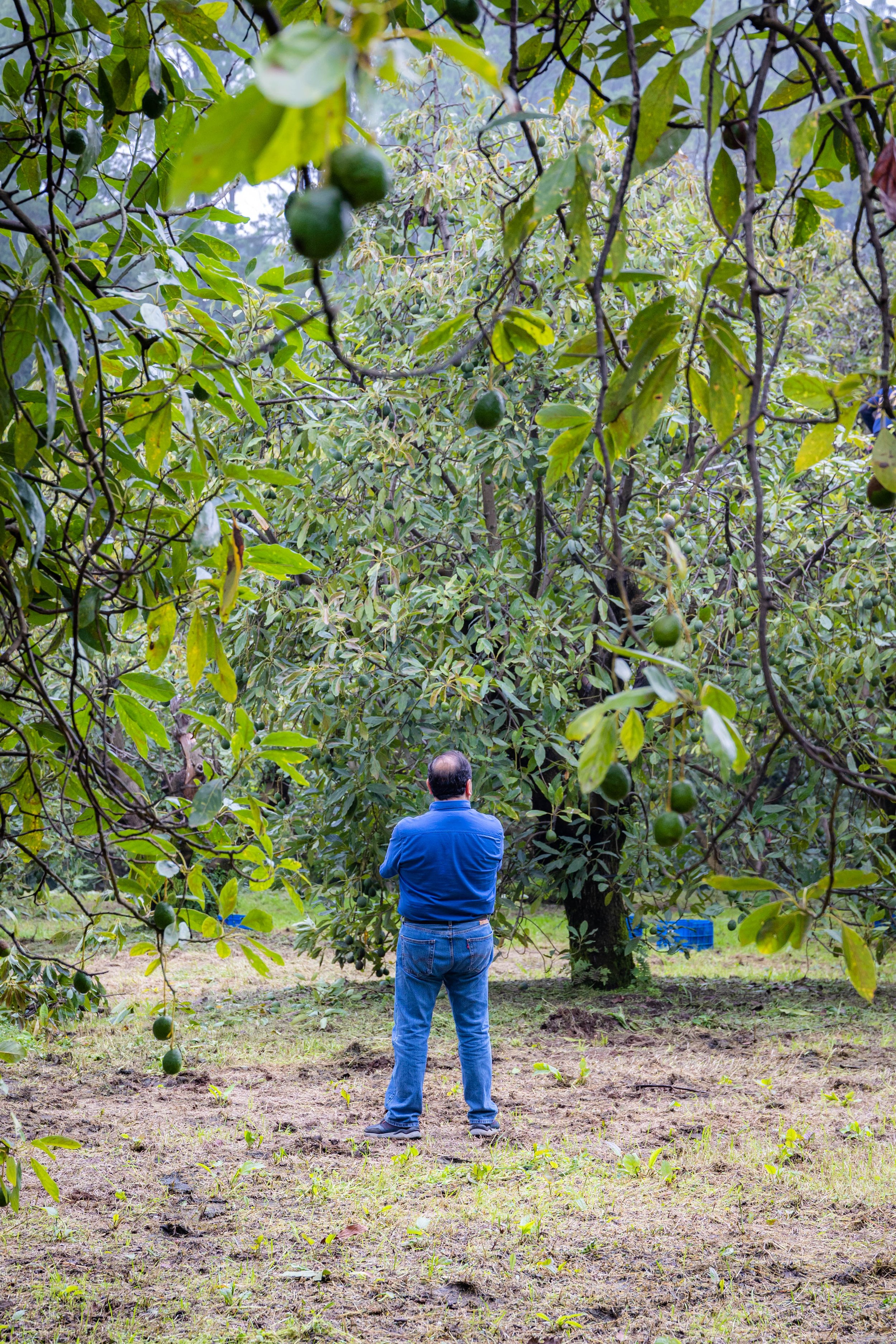
Current Challenges for Small-Scale Avocado Farmers in Michoacán
At Equal Exchange, we take pride in our model of truly responsible sourcing that promotes economic justice, environmental sustainability, and community development in regions where our products are grown. Despite the efforts made to cultivate positive change, however, there are certain macro-level issues that continue to impact our sourcing partners and their communities. For avocado farming co-operatives PRAGOR and Integradora Vics—our partners in the state of Michoacán, Mexico—the most pressing challenges include falling sales prices amid rising input costs, market rigidity in US stores, and the negative effects of climate change.

These Avocado Farmers Welcome Monarchs
Farmland can be conservation land—when managed with that goal in mind. Monarch butterflies could soon be listed as endangered because of their drastic population decline. While you could plant native milkweed or nectar plants as waystations to help support the population, the farmers in central Mexico who supply Equal Exchange avocados are also protecting and restoring the forests where these amazing butterflies spend the winter.

Truly Responsible Sourcing
Equal Exchange imports avocados exclusively from democratically structured, organic- and Fairtrade-certified cooperatives of small-scale farmers (each possessing under 10 hectares of orchard) in Michoacán. With direct weekly pricing negotiations, additional Fairtrade premiums paid to the cooperatives, and collaborative efforts to maximize efficiency, both parties strive to thrive ethically in an industry dominated by large, foreign-owned corporations.

Journey to ACOPAGRO and Connecting Communities with the Origin Bean Program
In 2019, Equal Exchange worked alongside ACOPAGRO cacao co-op of Peru to foster a delegation opportunity like no other. A blend of Equal Exchange worker-owners and customers traveled three hours from the nearest city by boat to learn about cacao farming in the Amazon basin and stayed with gracious hosts who opened their homes and lives to share in this experience.

